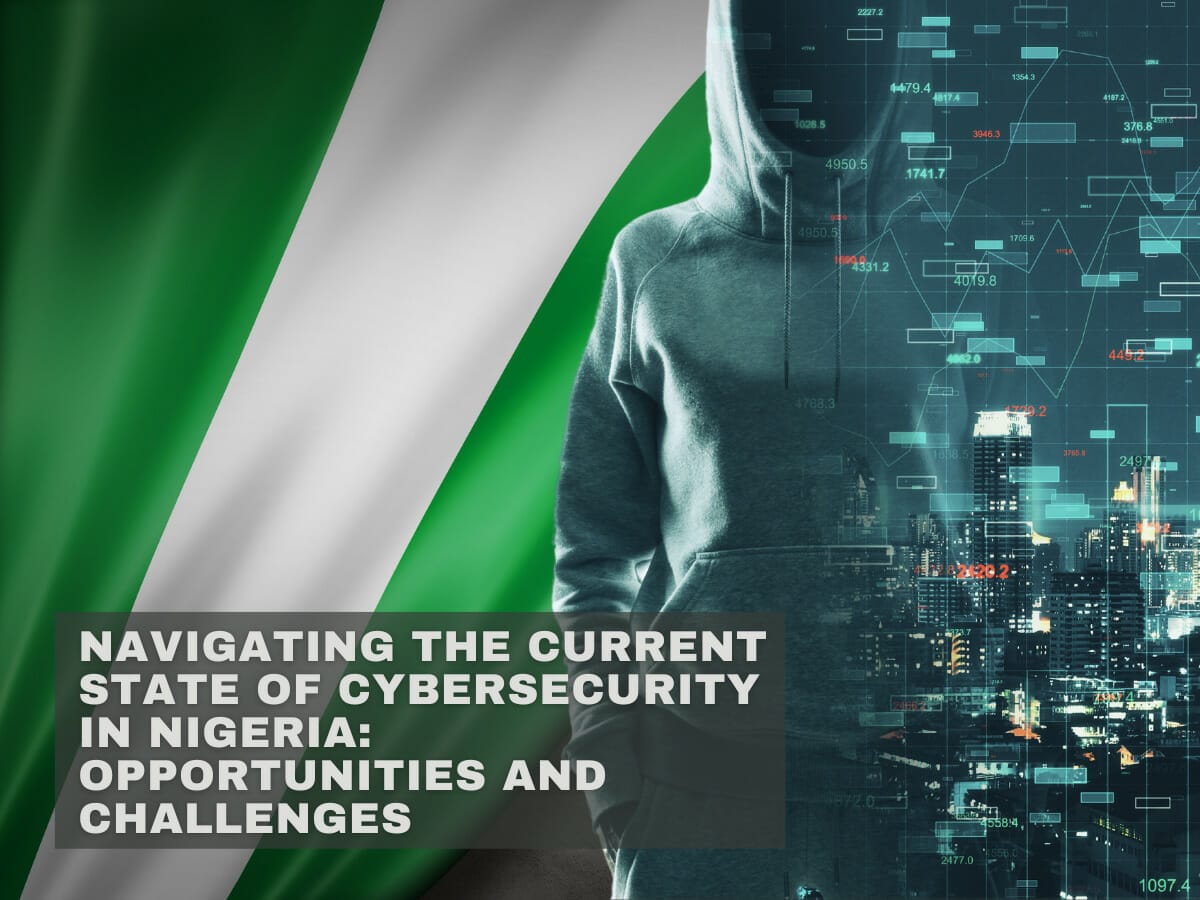The need for reliable and effective cybersecurity has become more critical as the world becomes increasingly interconnected. This is particularly true in Nigeria, where the cybersecurity landscape constantly evolves. In this article, I will provide an overview of the current state of the cybersecurity landscape in Nigeria in 2023, discuss the challenges facing the country, and explore the opportunities available to Nigerians in cybersecurity.
Introduction to the Current State of Cybersecurity in Nigeria in 2023
Cybersecurity has become a significant concern for individuals, businesses, and governments worldwide, and Nigeria is no exception. The country has experienced increased cybercrime and cyber attacks in recent years, which is expected to continue. In 2023, Nigeria will face many challenges in cybersecurity, but there are also opportunities for growth and development.
Overview of the Cybersecurity Landscape in Nigeria
The cybersecurity landscape in Nigeria is complex and multifaceted. On the one hand, the country has made significant progress in developing its cybersecurity infrastructure, including establishing the National Cybersecurity Policy and Strategy in 2020. On the other hand, Nigeria continues to face significant challenges in combating cybercrime and protecting its critical infrastructure.
One of Nigeria’s biggest challenges is the lack of awareness and education about cybersecurity. Many Nigerians are unaware of the risks and vulnerabilities associated with using technology, which makes them easy targets for cybercriminals. Additionally, Nigeria faces challenges in developing a skilled workforce in the field of cybersecurity.
Cybersecurity Challenges Facing Nigeria
Nigeria faces many challenges in the field of cybersecurity. One of the biggest challenges is the prevalence of cybercrime. Cybercriminals in Nigeria target individuals, businesses, and government agencies, and the country has become a hub for cybercriminal activity. This has led to significant financial losses for individuals and businesses and a loss of trust in digital technologies.
Another challenge facing Nigeria is the lack of adequate legislation to combat cybercrime. The Cybercrime (Prohibition, Prevention, Etc.) Act was passed in 2015, but many experts believe it is not comprehensive enough to address the complex nature of cybercrime. There is also a lack of resources and training for law enforcement agencies to investigate and prosecute cybercriminals effectively.
Opportunities in Cybersecurity for Nigerians
Despite Nigeria’s challenges, there are opportunities for growth and development in cybersecurity. One of the immense opportunities is the increasing demand for cybersecurity professionals. As more businesses and government agencies in Nigeria adopt digital technologies, a growing need for skilled cybersecurity professionals to protect against cyber threats is growing.
There are also opportunities for entrepreneurship in the field of cybersecurity. Nigerian entrepreneurs can establish cybersecurity firms that provide penetration testing, vulnerability assessments, and incident response services. With the right skills and resources, Nigerian entrepreneurs can capitalise on the growing demand for cybersecurity services in Nigeria and beyond.
Job Opportunities in Cybersecurity for Nigerians
As mentioned earlier, there is a growing demand for cybersecurity professionals in Nigeria. This demand is expected to continue in the coming years as more businesses and government agencies adopt digital technologies. There are many job opportunities available to Nigerians in the field of cybersecurity, including roles such as:
- Cybersecurity Analyst
- Network Security Engineer
- Information Security Manager
- Penetration Tester
- Incident Response Analyst
Nigerian cybersecurity professionals can also work remotely for companies based in other countries, which provides an opportunity to work for some of the world’s leading cybersecurity firms.
Challenges of Cybercrime Investigation in Nigeria
One of Nigeria’s most significant challenges in cybersecurity is the investigation and prosecution of cybercriminals. The country lacks the resources and expertise to investigate and prosecute cybercrime cases effectively. This has led to a culture of impunity for cybercriminals, further fueling cybercrime in Nigeria.
To address this challenge, Nigeria must invest in developing its law enforcement agencies and provide them with the necessary resources and training to effectively investigate and prosecute cybercrime cases. There is also a need for greater collaboration between law enforcement agencies and the private sector to combat cybercrime.
Cybersecurity Business Potentials in Nigeria
Nigeria has significant potential for the growth of cybersecurity businesses. As more businesses and government agencies adopt digital technologies, there is a growing need for cybersecurity services. Nigerian entrepreneurs can establish cybersecurity firms that provide penetration testing, vulnerability assessments, and incident response services.
In addition, Nigeria can become a hub for cybersecurity research and development. With suitable investments in research and development, Nigerian cybersecurity firms can develop innovative solutions to address the country’s cybersecurity challenges and compete globally.
Establishing a Penetration Testing Company in Nigeria
Penetration testing is an essential part of any cybersecurity program. Nigerian entrepreneurs can establish penetration testing firms that provide services to businesses and government agencies. To select a successful penetration testing firm in Nigeria, entrepreneurs need the right skills and expertise in cybersecurity and access to the necessary tools and resources.
Entrepreneurs also need to develop a strong network of clients and partners, as well as a reputation for excellence in the field of cybersecurity. With the right approach, Nigerian entrepreneurs can establish successful penetration testing firms contributing to the country’s cybersecurity infrastructure.
Remote Cybersecurity Jobs for Someone Based in Nigeria
Nigerian cybersecurity professionals can work remotely for companies based in other countries. This provides an opportunity to work for some of the world’s leading cybersecurity firms and gain valuable experience in the field. To work remotely in cybersecurity, Nigerian professionals need the right skills, expertise, and access to the necessary tools and resources.
They also need to communicate effectively with their colleagues and clients, which requires strong language and interpersonal skills. With the right approach, Nigerian cybersecurity professionals can establish successful careers working remotely for companies in other countries.
Information Security Personnel Benefits in Nigeria
Information security personnel in Nigeria can enjoy many benefits, including job security, competitive salaries, and career growth and development opportunities. As the demand for cybersecurity professionals continues to grow, information security personnel in Nigeria can expect to have a bright future in the field.
In addition, information security personnel in Nigeria have the opportunity to impact the country’s cybersecurity landscape significantly. By developing a robust cybersecurity infrastructure and promoting awareness and education around cybersecurity, information security personnel in Nigeria can contribute to a safer and more secure digital future for the country.
Conclusion on Navigating the Current State of Cybersecurity in Nigeria: Opportunities and Challenges in 2023
In conclusion, Nigeria faces many challenges in cybersecurity, but there are opportunities for growth and development. Nigerian entrepreneurs can establish successful cybersecurity firms, and cybersecurity professionals can enjoy rewarding careers working for businesses and government agencies.
To address Nigeria’s cybersecurity challenges, the country needs to invest in developing its cybersecurity infrastructure and training its workforce. With the right approach, Nigeria can become a leader in the field of cybersecurity and contribute to a safer and more secure digital future for the country and the world.



